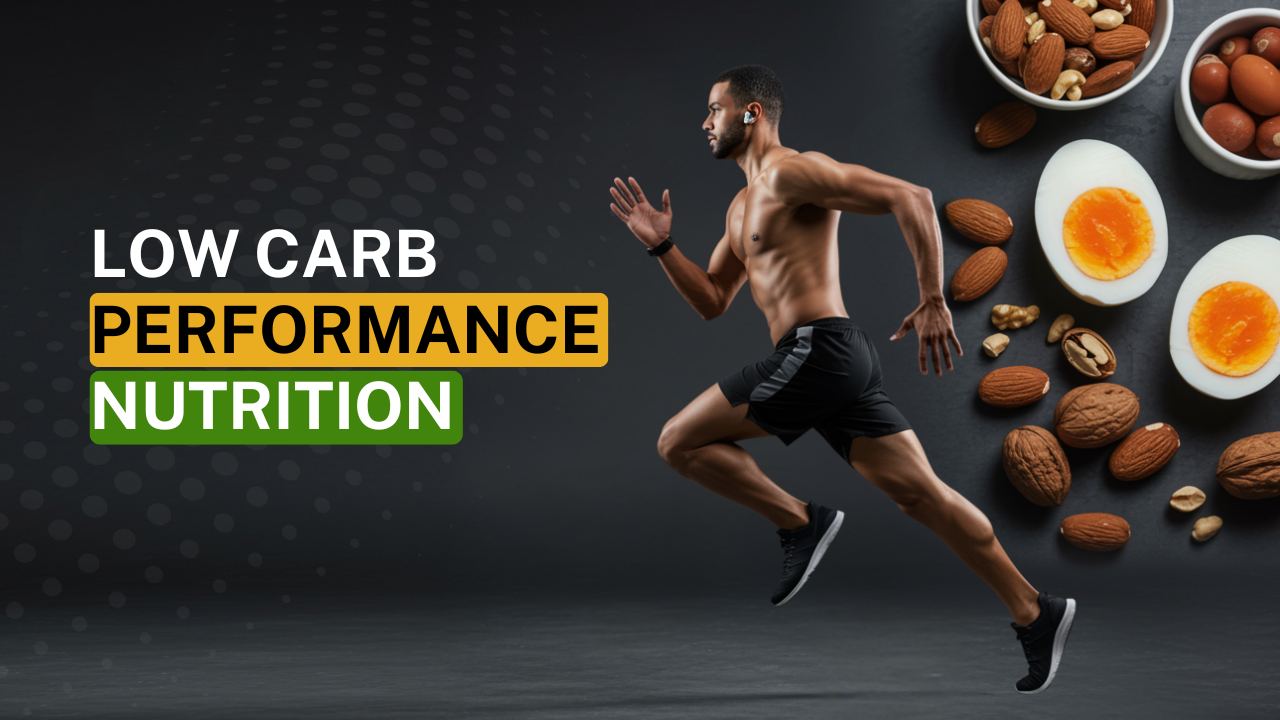Eating carbohydrates before exercise is a must for performance: A fitness myth that many of us Indians grow up believing…
But what if I told you that the advice is overrated? That’s right! A low-carb approach could be a much cleaner, smarter way to fuel your training.
Science Supports It
Let me begin by explaining how this interesting study was conducted so you can understand why I trust it’s findings. The study titled “Substrate Oxidation Does Not Influence Middle Distance Running Performance” was a randomised controlled crossover trial.
The study method in short:
- A group of trained middle-distance runners performed running tests multiple times under different dietary conditions.
- On different days, they ate either carbohydrate-rich meals, protein-rich meals, or nothing (fasted) before running.
- The runners’ performance, as well as how their bodies burned different fuels—carbs, fats, or protein (called substrate oxidation)—were closely measured during running tests.
- Because this was a crossover design, every participant experienced all conditions at different times, which makes the study very reliable.
The surprising result? Their running performance was the same regardless of what they ate or didn’t eat before training. Neither the type of fuel burned nor the pre workout carb intake changed how well they ran.
Traditional sports nutrition practices have always encouraged foods like rice, roti, oats (all cereals/grains) or bananas before a workout. These are seen as essential energy sources, and skipping them can cause anxiety about missing “fuel.” In fact you may be shocked to know that insulin resistance is now being seen in Indian athletes.
But this study tells us something else: you don’t need to rely on high-carb pre workout meals to perform well. Your body has incredible fuel flexibility and can adapt using fat and protein as clean energy sources. YOUR DIET IS WELL-FORMULATED AND YOU MUST SPEND AT LEAST 6-12 WEEKS TRAINING WITHOUT CARBS!
In practice
This study is recent but I’ve been using the low carb approach for recreational and professional athletes, across sports with fabulous results. In fact, I encourage training in a fasted state as far as it’s possible.
Low-carb fuel means relying more on your body’s fat stores for energy.
Benefits
Stable Energy: Unlike carbs, which cause blood sugar fluctuations, hunger and cravings, fats burn steadily, giving you more balanced energy without those annoying energy dips mid-workout and having to eat multiple times.
Lower Inflammation: When your body burns fat, it’s a slower, cleaner burn producing fewer harmful free radicals, lowering inflammation and promoting recovery.
Fat Loss: Lower carb intake combined with exercise promotes fat oxidation, aiding weight management and metabolic health—very important goals for many fitness enthusiasts here in India.
Mental Clarity: Low-carb states often improve mental focus and reduce post-meal sluggishness, valuable during training or competitive sports.
How does it work?
Your muscles store glycogen (carbohydrates/glucose stored in muscles and liver), but it’s a limited reserve. Your body taps into this first when you begin activity and lasts for 60-90 minutes on a carb dominant diet, also depending on the intensity of the activity.
When you reduce pre workout carbs:
- Your body turns more to fat stores or protein breakdown for energy and filling up the glycogen reserve.
- This metabolic adaptability does not harm performance but can improve it over time as your body becomes more efficient.
Carb-loading causes:
- Digestive discomfort
- Sluggishness
- Energy crashes mid-exercise
A low-carb fuel approach lets you avoid these issues — eating cleaner meals that promote consistent energy and performance.
Practical Low-Carb Pre workout Tips for Indian Athletes
Prioritise Protein:
Opt for snacks like boiled eggs, cubes of paneer, nuts with a protein shake.
Fasted Training:
Early morning training before breakfast is an excellent low-carb strategy embraced by many athletes. This approach enhances fat burning and metabolic flexibility without hurting your performance, as the study confirms. This one is tricky though as it needs your previous day’s nutrition to be adequate for complete recovery.
Hydrate: Ensure you are well hydrated. Electrolytes are important.
Zero carb forever?
The low-carb approach is not a criticism of all carb consumption. But my practical experience after having worked with hundreds of athletes with this research backed approach over the years, makes me want to educate you on this topic.
Breaking free from outdated nutrition myths empowers you to train smarter and stay healthier. Moving towards a low-carb pre workout strategy can offer cleaner energy, fat loss advantages, and sustained performance on the field, track, or gym.
Low carb can be cycled strategically with a moderate dose of carbs from time to time. The timing, duration and amount should be planned by a qualified keto dietitian based on the athlete’s feedback.
Takeaway :
Eating carbs for exercise performance and specially pre workout is overrated.
Protein and fat are cleaner fuels, confirmed by solid studies.
The low carb approach has a performance and metabolic advantage for long-term health specially is a diabetes led country like ours.
Get in touch if you want to give this a try under professional guidance!
Reference :
Alex Buga et al, Substrate Oxidation Does Not Influence Middle Distance Running Performance: A Randomized Controlled Crossover Trial, Nutrients 2025, 17(17), 2771.

